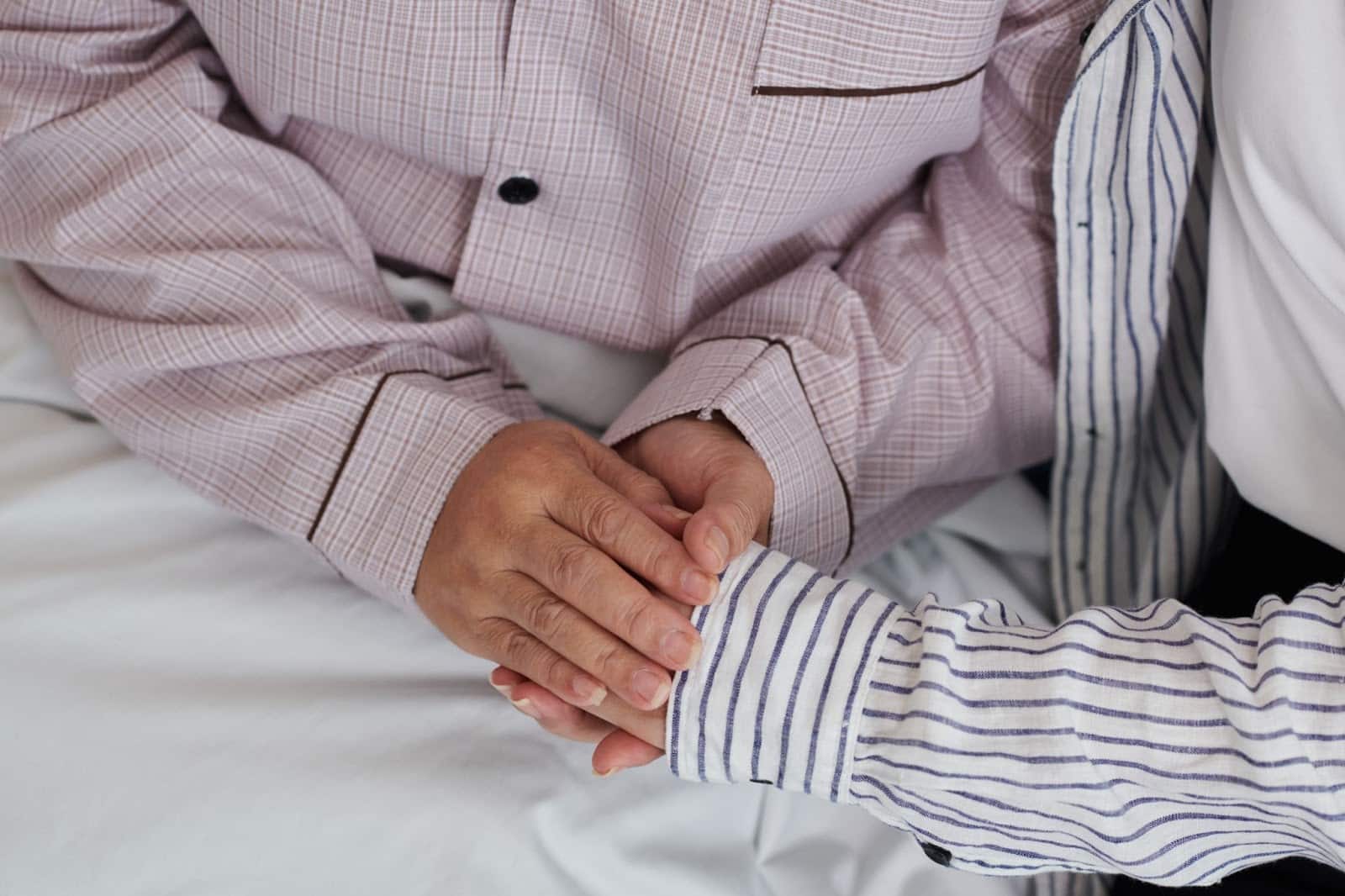Griefing is a process everyone goes through at one point or another. It’s part of the human condition and a natural response to losing someone we love. Grief is an abstract experience and there’s no easy way to deal with it.
According to psychiatrist Elisabeth Kubler Ross, grief can be divided into 5 stages; denial, anger, bargaining, depression and acceptance. These stages are referred to as the “5 stages of grief” and it’s a model that describes how we process the loss of someone we love.
Here’s what you may experience at each stage of the grieving process.
5 Stages of Grief
Stage 1: Denial
It’s common for people to pretend like the loss isn’t happening and that takes us to the first stage of grief. Denial is used as a defence mechanism to help us cope with someone’s passing as we may refuse to accept the reality of the loss.
Being in shock or disbelief is normal during this stage and denial is a natural way of numbing the situation. Nonetheless, we cannot be in denial forever and we will have to face the reality of the situation sooner or later.
Our pent up emotions will begin to rise and we’ll be confronted with a lot of sorrow and anger.
Stage 2: Anger
The second stage is anger, a response to feeling powerless and helpless in the face of a loss. Anger can be directed to anyone – the person who died, family, doctors or even yourself. As a way to mask your emotions, you start blaming anyone regardless of who that might be.
You might also lash out and act on impulse. You’ll start asking questions and making remarks like “why me?” or “it’s not fair!”. You may even express your anger in a whole range of ways such as shouting, crying or withdrawal from others.
If channelled properly, anger can also be a good way to get out of your grief. You can use it to take action and think more rationally by embracing the emotions you’ve pushed aside.
Stage 3: Bargaining
Bargaining is an attempt to regain control or make sense of the loss. It’s a moment of vulnerability where you’d do anything to reverse the clock and get your loved one back. You may imagine various “what if” scenarios where you saved your loved one from dying.
Guilt is a common emotion that’s associated with bargaining as people tend to blame themselves for not doing enough to stop the loss. Bargaining is also used to postpone the emotions of grief which inevitably, will lead to feelings of anxiety and depression.
Stage 4: Depression
The fourth stage is depression and it’s a period where we start to fully embrace our emotions. This is often associated with feelings of hopelessness and helplessness along with an overwhelming sensation due to the loss.
Feeling depressed is a natural response and it’s one of the healthier stages of grief. It’s where we start to reflect on what has happened without the influence of the previous three stages.
Nonetheless, depression is not easy to deal with and you might feel the effects from a mental and physical standpoint. You may experience a lack of sleep, a loss of appetite and the need to isolate yourself from society.
As painful as this can be, depression can also be used as a time to reflect, grow and accept the state of things.
Stage 5: Acceptance
Acceptance is a stage where you realise that the loss is real and irreversible. It doesn’t mean you are happy about the whole ordeal but it shows that you’ve accepted the outcome of the situation and you’re ready to move forward.
You’ll also find a sense of peace and closure along with a newfound ability to acknowledge death as a normal human experience. You may feel sad from time to time but ultimately, you’ll learn how to be present while accepting the nature of losing someone close to you.
Grief Myths & Truth

(Image Source: Envato)
The 5 stages of grief provide a useful framework for understanding grief. Nonetheless, there are grief myths that can hinder our processing of loss. Let’s explore some of these myths and truths that debunk them:
Myth 1: Grief only lasts a year.
Truth: There is no set timeline for grief. The intensity and duration of grief can vary from person to person. Some people may start to feel better within a few months, while others may continue to experience strong emotions for years.
Myth 2: Keeping busy will help you move on.
Truth: Staying busy can be a helpful coping mechanism for some, but it’s important to allow yourself time to process your emotions. Suppressing grief by staying constantly occupied can delay the healing process.
Myth 3: You should avoid talking about the deceased.
Truth: Talking about your loved one and sharing memories can be an important part of the healing process. It helps keep their memory alive and can provide comfort and connection.
Myth 4: Seeking professional help is a sign of weakness.
Truth: Grieving is a deeply personal process. But seeking help from a therapist or support group can be a strong and positive step towards healing.
Professional grief counselling can provide valuable tools and strategies to navigate the complex emotions of grief.
Grief Symptoms

(Image Source: Pexels)
Grief can manifest in different ways, affecting individuals both emotionally and physically. Recognising these symptoms can help you understand what you’re experiencing. You’ll then be able to seek the support you need. Here are some common symptoms of grief:
Emotional Symptoms
Sadness and Crying:
Sadness and crying are the most common symptoms. It’s a common response to loss so you should feel ashamed. This usually happens during the depression stage or during the final stages of grief.
Irritability:
Some people may feel more irritable than usual when grieving. This heightened sensitivity can stem from the overwhelming emotions and stress associated with loss.
You might find yourself easily frustrated, agitated by small things, or snapping at others.
Guilt and Regret:
It’s common to feel guilty or regretful after losing someone close to you. You might second-guess decisions made during their illness or question whether you could have done more to prevent their death.
These feelings can be overwhelming and may contribute to a sense of heaviness or self-blame.
Loneliness and Isolation:
Grief can lead to feelings of profound loneliness, even when surrounded by others. You might feel disconnected from friends or family who don’t fully understand your loss.
Physical Symptoms
Fatigue and Weakness:
Grieving takes a toll on both the mind and body. You may feel physically drained, lacking energy even after rest.
This fatigue can be persistent and make it difficult to engage in daily activities or maintain your usual routines.
Sleep Disturbances:
Many people experience changes in their sleep patterns while grieving. You may have trouble falling asleep or you’ll wake up frequently during the night.
Some people may experience vivid dreams or nightmares related to your loss. These are called grief dreams and it’s completely normal to have them.
Changes in Appetite:
Grief can affect your appetite in different ways. Some people may have little interest in food and experience weight loss. While others may turn to food for comfort and gain weight.
These changes can impact your physical health and contribute to feelings of lethargy or imbalance.
Headaches and Muscle Tension:
Stress and emotional strain can manifest physically, leading to headaches, muscle tension and even migraines. These physical symptoms are your body’s way of responding to the emotional pain.
They can vary in intensity depending on your stress levels
Final Thoughts
It’s important to note that not everyone experiences grief the same way. People may skip, revisit or go through grief in a totally different order. Some might experience a completely different model of grief compared to others.
Whatever it may be, grief is a natural human response and you should give yourself time to adapt and accept your losses. If you need help, you can always reach out and talk to someone like your family, friends or healthcare professionals.








